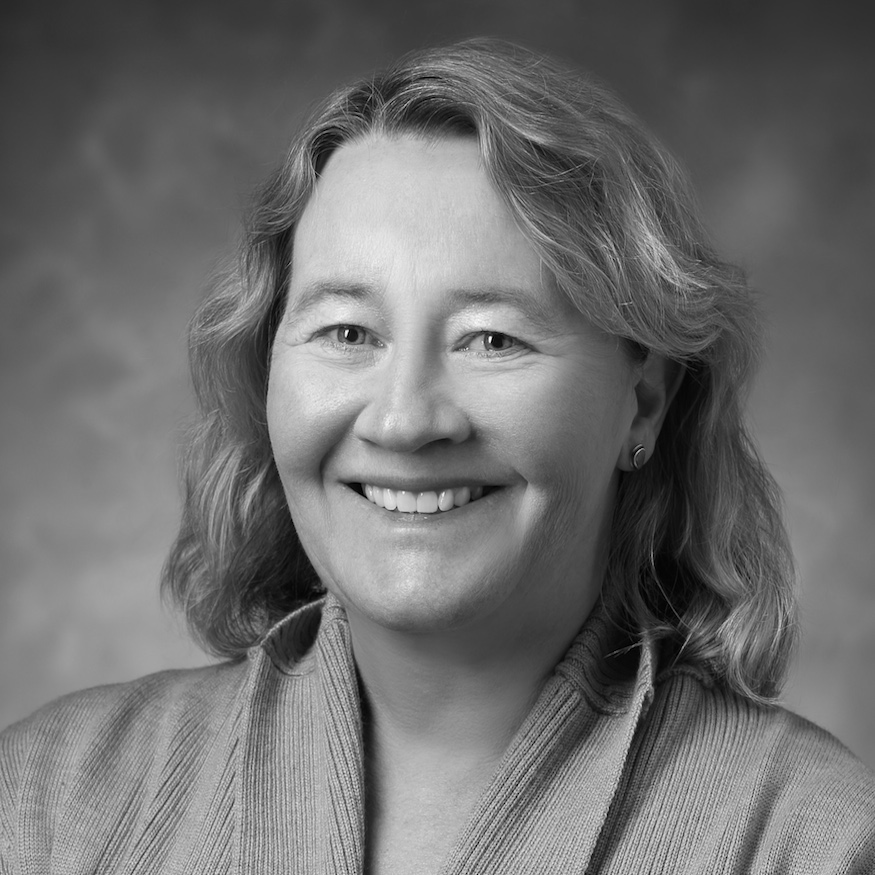Carol Greider
What do you do every day?
Carol Greider: Days in my life are extremely varied. I don't have a regular day- which is nice. I will meet one on one with the researchers working in my lab and get all the nitty gritty experiment details- maybe six or seven meetings in a day, maybe once or twice a week. I teach large lecture classes as well as small groups. I spend time in administrative meetings- hiring and promotional meetings. The thing I love the best is meeting one on one with scientists- or our meetings where one scientist presents their work and we all brainstorm- or our meetings based on scientific literature where we critique current articles and really learn from other's work.
Why do you love your job?
Carol Greider: There are surprising things that you learn- even little small things. I like finding things out. Even when you get a small thing to work, it's very satisfying! And the big things, like RNAi for biology, that when I was a graduate student we didn't know anything about. That's why I will be reading Science and Nature when I get home, on a Friday night. I try to read biology generally, not just my specific field.
What were your biggest moments of fear or challenge in your career?
Carol Greider: One of the things I believe about science- the difference between science and politics is that in science you can always get something right- in politics you never can! I have always prided myself on being clear that we set out to test a hypothesis, not prove a hypothesis- but I also pride myself on being correct! There are times when we have published things that scientifically were wrong- but I felt very strongly that we had to publish the results that showed we were wrong too. If I believe science is self correcting, it is my duty to correct myself. There's pressure to spin things- but science doesn't move forward that way.
What are the latest innovations in science that you are the most excited about?
Carol Greider: Advances in genome sequencing- and what we can discover with the ease of genome sequencing today. Population migration etc. that come from genetics but uses it in a very new way.
Where did you grow up?
Carol Greider: I grew up in Davis, California- it's an academic, university town.
Do you have a unique or quirky talent?
Carol Greider: When I was in junior high and high school, I used to do vaulting on horseback! I taught horseback to six to twelve year olds as a teenager and was on a national team for it.
Since we are The Science Runway, is there any style or fashion tips you would like to share?
Carol Greider: Be who you are- present yourself in a real way, as a real person- and you'll find that people really listen.
What are you reading currently and what are some of your favorite books or authors?
Carol Greider: I really liked "Olive Kitteridge" by Elizabeth Strout.
Do you have a guilty pleasure or a website that you visit everyday?
Carol Greider: I visit PubMed everyday to see what's news in the field.__Guilty pleasure- Lindt Chocolate Truffles (Dark Chocolate)
About Carol Greider
Carol Greider, Ph.D. received her bachelor 's degree from the University of California at Santa Barbara in 1983 and a Ph.D. in 1987 from the University of California at Berkeley. In 1984, working together with Dr. Elizabeth Blackburn, she discovered telomerase, an enzyme that maintains telomeres, or chromosome ends. In 1988, Dr. Greider went to Cold Spring Harbor Laboratory where, as an independent Cold Spring Harbor Fellow, she cloned and characterized the RNA component of telomerase. In 1990, Dr. Greider was appointed as an assistant investigator at Cold Spring Harbor Laboratory, followed later by appointment to Investigator in 1994. She expanded the focus of her telomere research to include the role of telomere length in cellular senescence, cell death and in cancer. In 1997, Dr. Greider moved her laboratory to the Department of Molecular Biology and Genetics at The Johns Hopkins University School of Medicine. In 2003 she was appointed as the Daniel Nathans Professor and Director of the Department of Molecular Biology and Genetics. At Johns Hopkins University, Dr. Greider 's group continued to study the biochemistry of telomerase and determined the secondary structure of the human telomerase RNA. She also expanded her work to include a mouse model of dyskeratosis congenita and stem cell failure in response to short telomeres. Dr. Greider shared the Nobel Prize in Physiology or Medicine in 2009 with Drs. Elizabeth Blackburn and Jack Szostak for their work on telomeres and telomerase. Dr. Greider currently directs a group of 10 scientists studying both the role of short telomeres in age-related disease and cancer as well as the regulatory mechanism that maintain telomere length.
